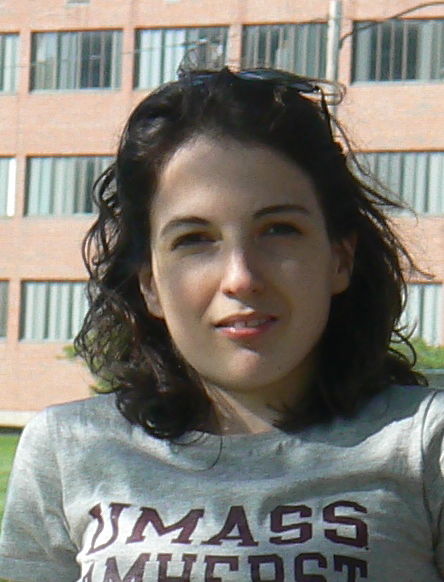
Luiza Maxim
University : Paris 3 Sorbonne Nouvelle (Ed 268 ‘Langage et langues’)
Langages Cognition Pratiques Ergonomie (Laboratoire d’Acoustique Musicale, CNRS, UPMC, 11 rue Lourmel Paris 75011 )
Member of Sensolier (Association for academic and industrial research on sensoriality) - http://www.lesensolier.com/indexFR.htm
Participant to the 3rd edition of interdisciplinary musicology Tallinn 2007 - Proceedings : http://www-gewi.uni-graz.at/cim07/index2.htm
Research theme
The metadiscursive activity of singing teachers. Some cognitive and prosodic aspects.
I’m essentially interested in forms of natural metalanguage in the discourse of music professionals. I’m using the concept of metalanguage in its largest sense as the specific capacity of language to allow for reflexive or internal reference (words become the object of the referring act).
The underlined expression in the following example is known as ‘autonymic’ in the linguistic literature :
Ex : « Il fait une voix blanche, c’est ce que j’appellerais voix blanche » ( He has a white voice, this is what I would call white voice)
The second occurrence of ‘white voice’ is in fact a ‘mention’ of the term (hence a reference to a linguistic object) as opposed to the first occurrence that corresponds to a ‘use’ of the same term ( hence a reference to an external object).
My description of these forms aims at integrating general cognitive aspects (memory and representations of vocal quality associated with verbal descriptors) as well as prosodic /intonational cues ( what are the melodic patterns associated with these special linguistic items ?)
The reflexive stance of the language is particularly prolific in a professional discourse where the specialist is often brought to reflect on the adequacy of the terms he uses to describe the object of his/her expertise. And since in our case, the object of expertise is a sensory one (acoustic), a study of autonymic modality ( J. A-Revuz, 1995) or of metadiscursive activity could largely benefit from the contribution of the enactivist program.
Video and experimental material